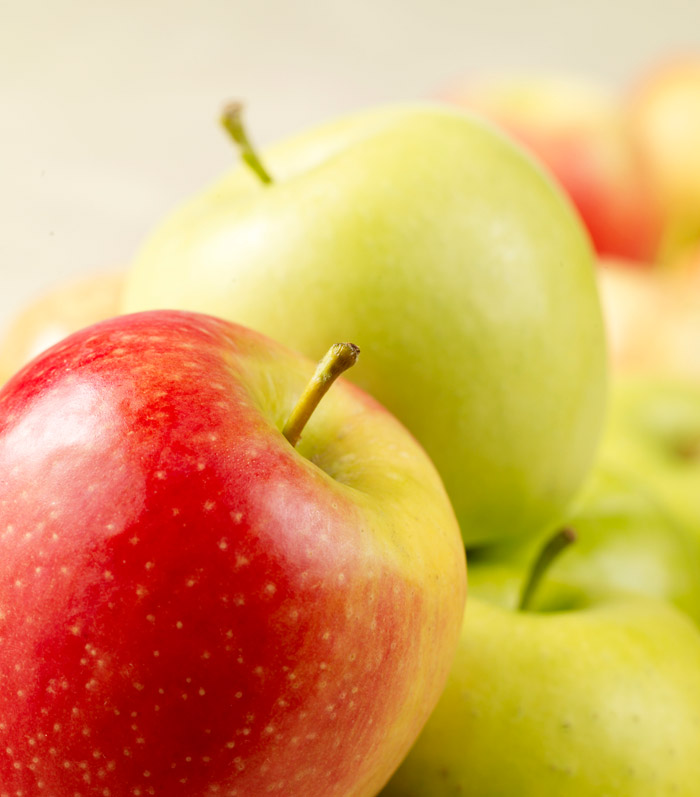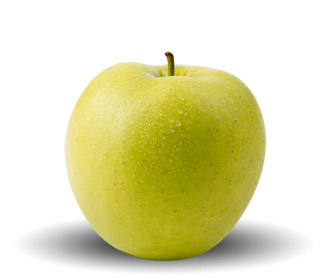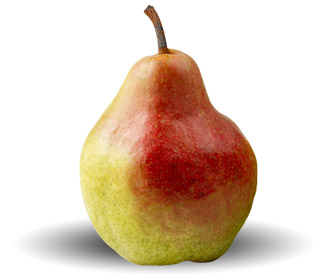Apples

The majority of South African apples are grown in the Elgin Valley in the Western Cape. Fruit growers in this area cultivate a wide range of tasty green and red apples. South African apples are available from March to October with all major Indian retailers. Some of the fantastic varieties to look out for during the season are:
Granny Smith – Tart yet sweet taste with a firm, white and crisp flesh
Gala – Sweet flavour, yellow skin with red stripes and a firm crisp flesh
Golden Delicious – Golden yellow skin, with a delicate pink blush
Pink Lady (Cripps’ Pink) – Attractive pink colour and exquisite taste, slightly oblong in shape
How to choose: Seek out apples that are firm with smooth and unblemished skin. Also look at the shape of the apple. A more round apple, which is usually younger, typical of the green variety, can be a little more flavourful than the elongated types.
How to eat: Apples can be eaten raw on their own or used in both sweet and savoury recipes from cakes, jams, pies, sauces to meat dishes and stews. Apples go particularly well with pork, chicken, goose and even fish.
Health and nutrition:
One South African apple counts as one of your 5-a-day and they are full of lovely health benefits, such as:
- High in vitamin C (6mg per 100g)
- Low in fat and do not contain any cholesterol
- High in dietary fibre (1.8g per 100g)
- A good source of potassium (120mg per 100g)
Apples are a delicious source of dietary fibre, which helps to aid digestion. A diet rich in apples could also help to lower cholesterol levels in the blood. Due to antioxidants and flavonoids present in apples, eating them could improve lung function and reduce the risk of respiratory diseases. Apples have also been found to play a role in inhibiting ageing related problems, helping to prevent wrinkles and promote hair growth. An apple won’t replace your toothbrush, but biting and chewing an apple stimulates the production of saliva in your mouth, reducing tooth decay by lowering the levels of bacteria. Apples are loaded with soluble fibre, the key to reducing sugar swings, which can greatly reduce the risk of developing type 2 diabetes. Red apples contain an antioxidant called quercetin. Recent studies have found that quercetin can help boost and fortify your immune system, especially when you’re stressed out.
[Source: The Composition of Foods, sixth summary edition, by McCance and Widdowson]


